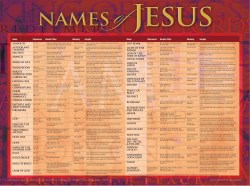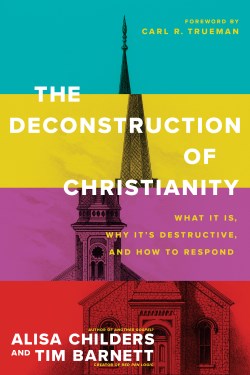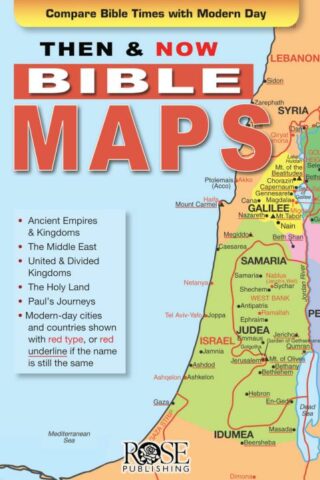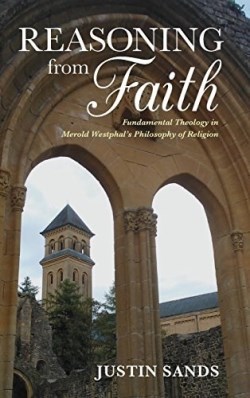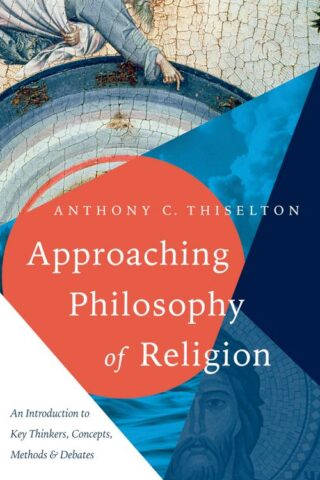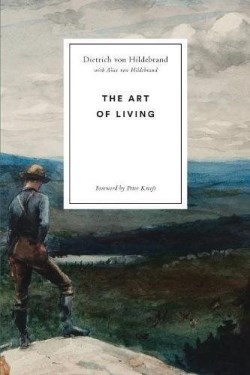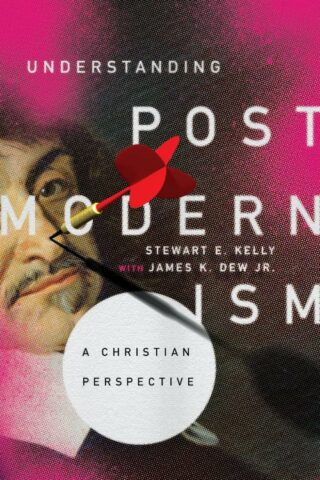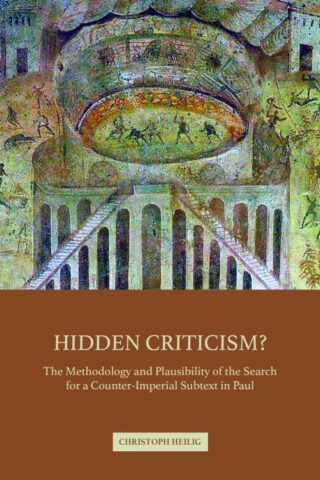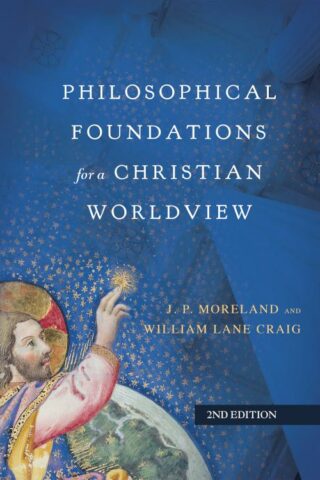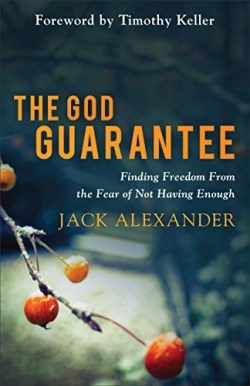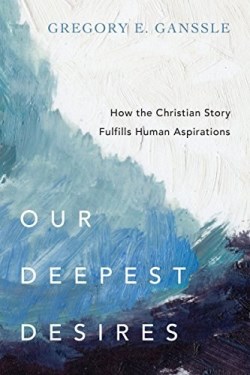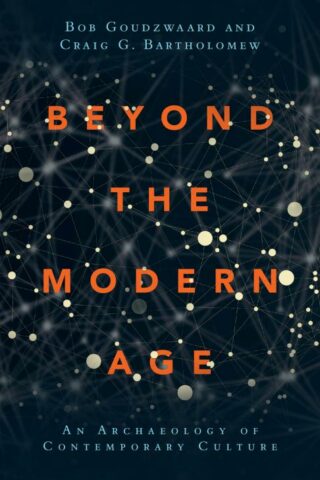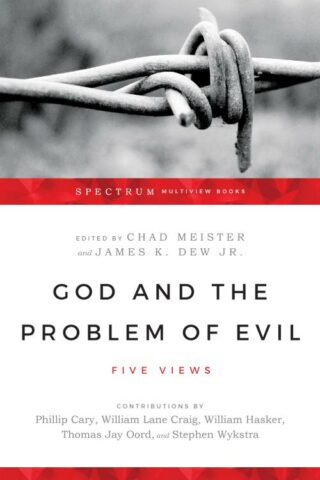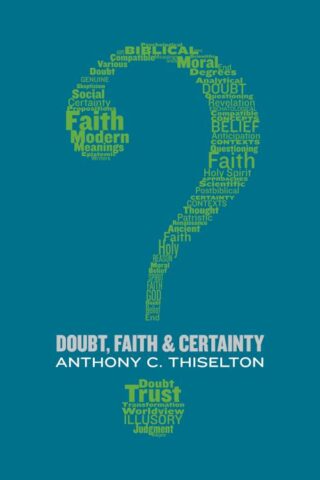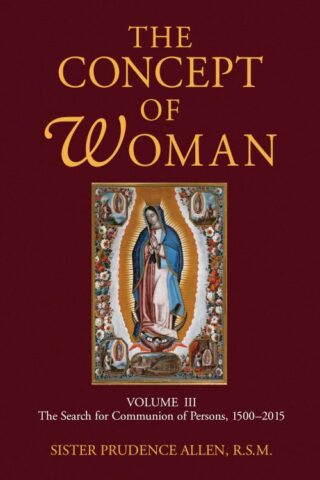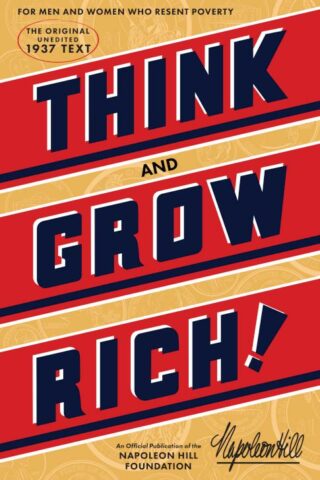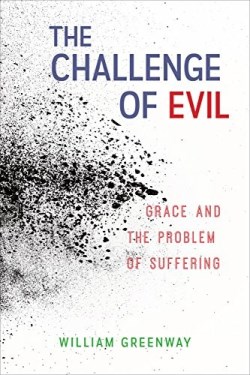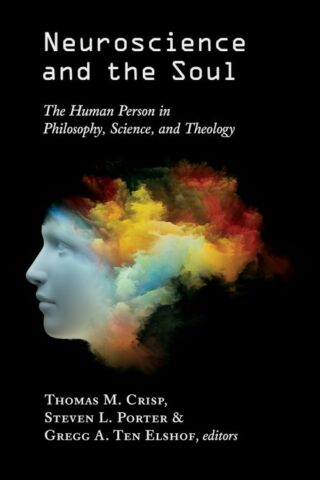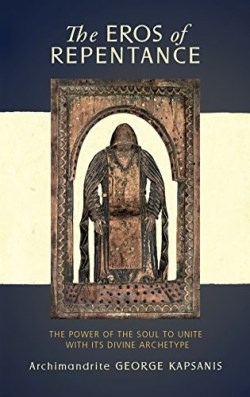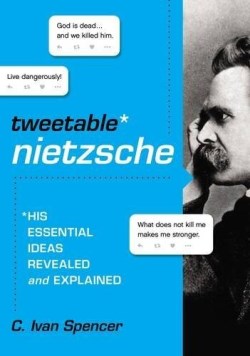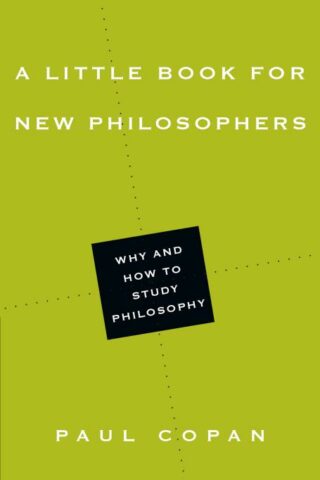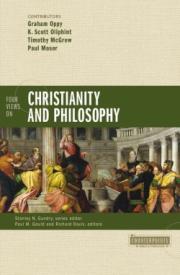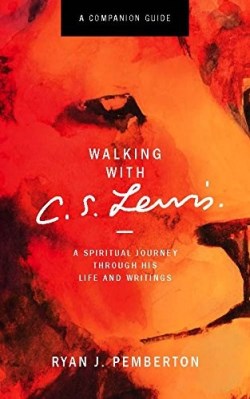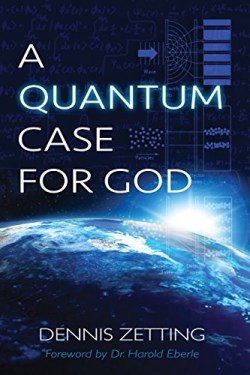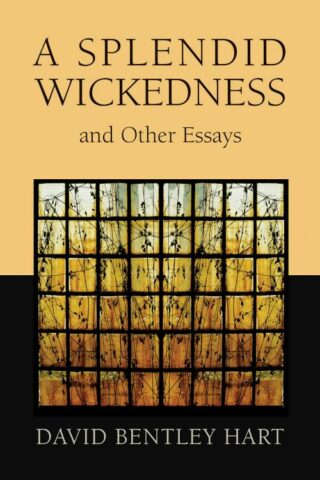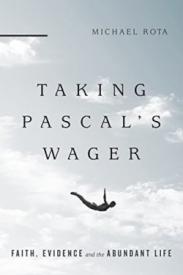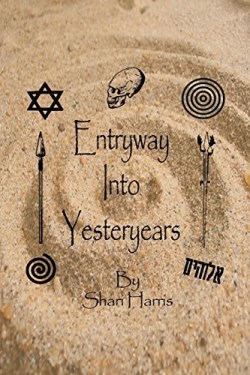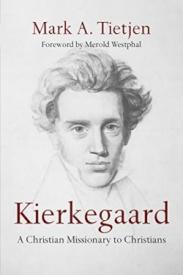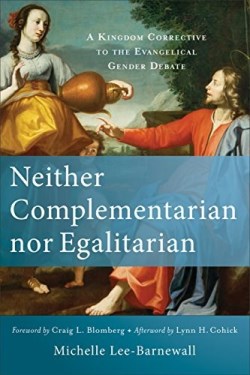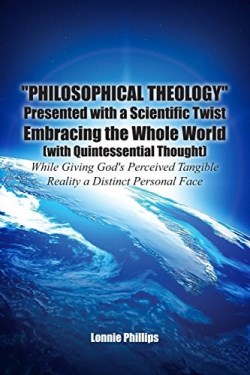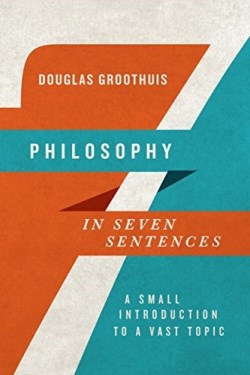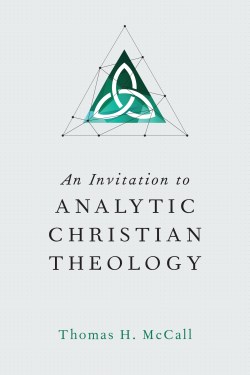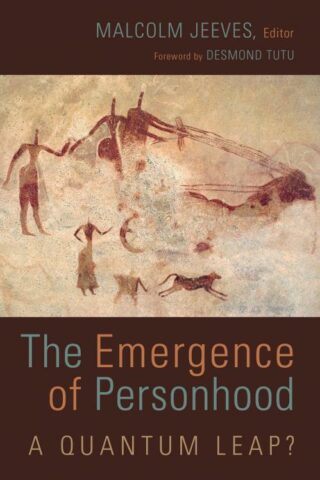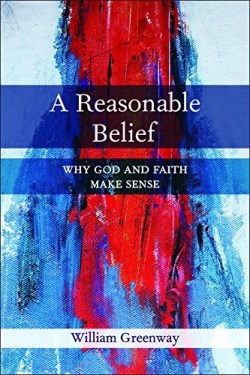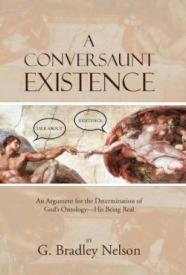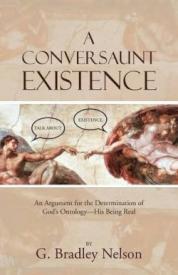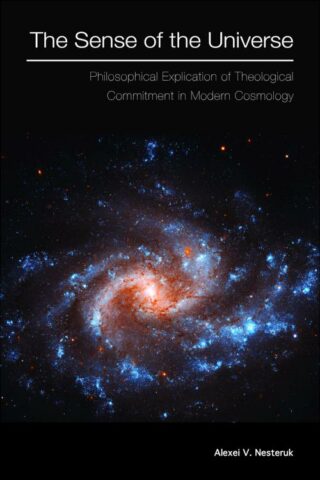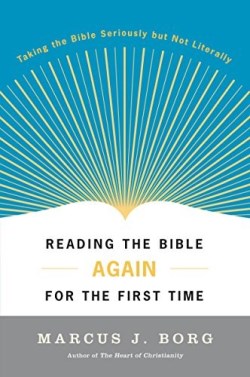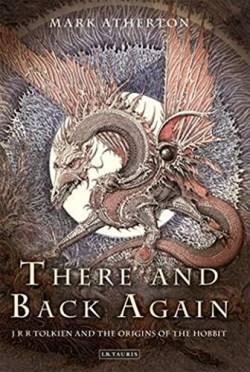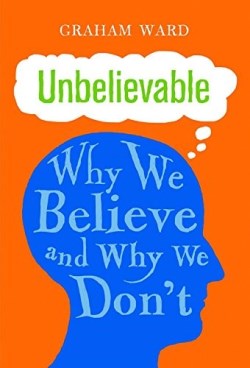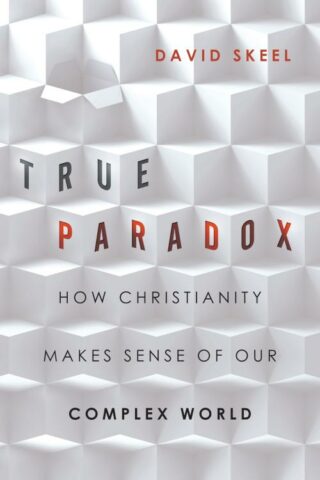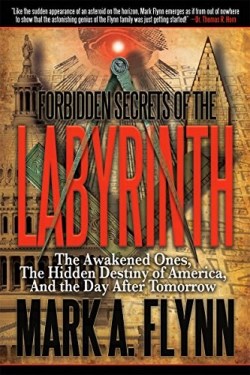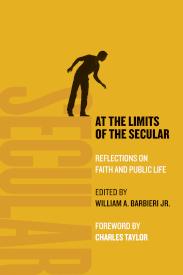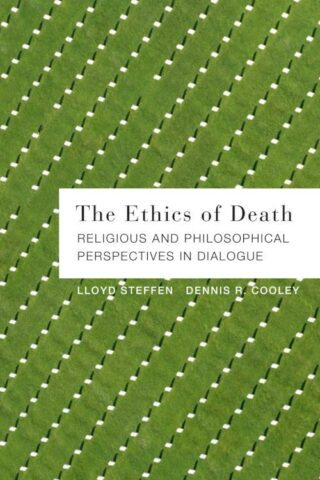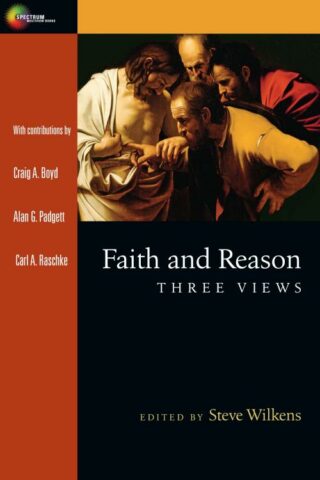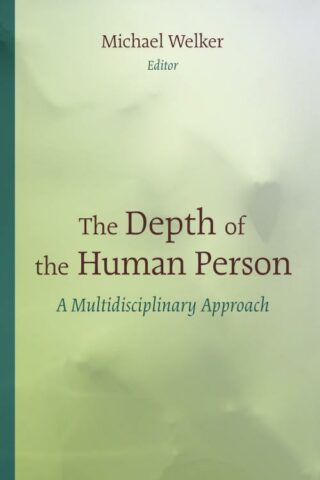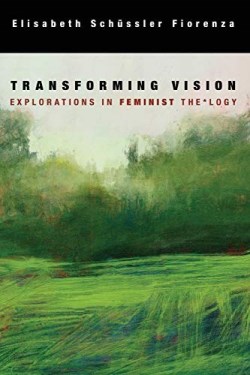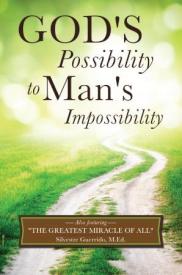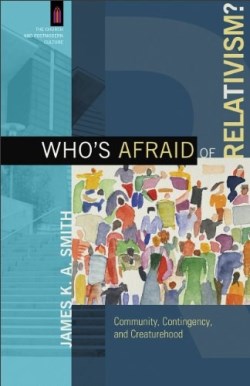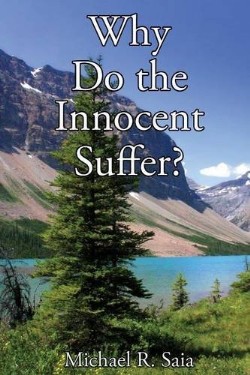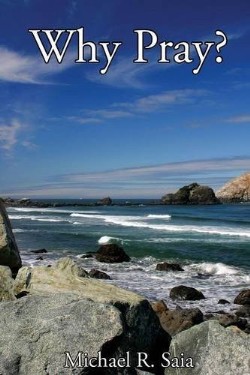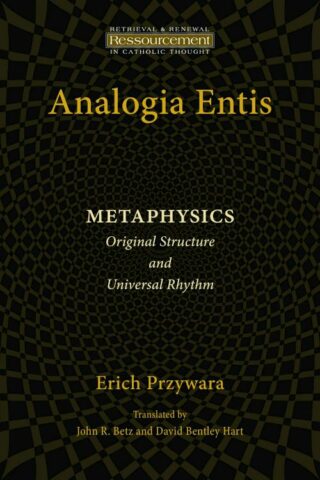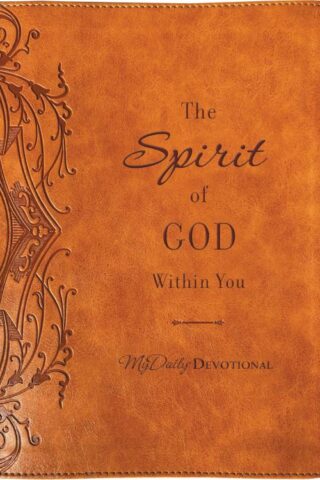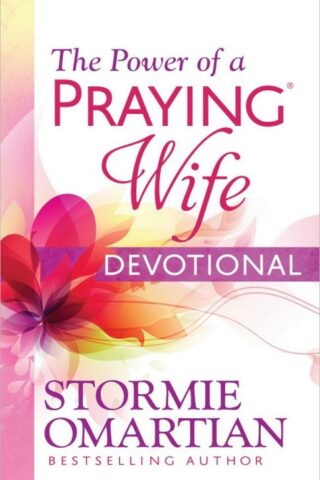Philosophy
Showing 51–100 of 414 resultsSorted by latest
-
Reasoning From Faith
$141.66Indiana University Press
Merold Westphal is considered to be one of the preeminent Continental philosophers of religion. His articulation of faith as the task of a lifetime has become a touchstone in contemporary debates concerning faith’s relationship to reason. As Justin Sands explores his philosophy, he illuminates how Westphal’s concept of faith reveals the pastoral, theological intent behind his thinking. Sands sees Westphal’s philosophy as a powerful articulation of Protestant theology, but one that is in ecumenical dialogue with questions concerning apologetics and faith’s relationship to ethics and responsibility, a more Catholic point of view. By bringing out these features in Westphal’s philosophy, Sands intends to find core philosophical methodologies as well as a passable bridge for philosophers to cross over into theological discourses.
Add to cartin stock within 3-5 days of online purchase
-
Approaching Philosophy Of Religion
$28.99Encountering philosophy of religion for the first time, we are like explorers arriving on an uncharted coastline. There are inviting bays and beaches, but rocky reefs and pounding surf as well. And what tribes may inhabit the land is anyone’s guess.
But our cautious intrigue turns to confidence as Anthony Thiselton greets us as a native informant. Cheerfully imparting insider knowledge, mapping the major landmarks, and outlining the main figures and issues in its tribal debates, he teaches us the basics for gaining cultural fluency on these foreign shores.
Approaching Philosophy of Religion is divided into three parts:
Part I (Approaches) provides descriptions of the main entrance ramps to studying the subject, with lively case histories, working examples, and assessments of their lasting value.
Part II (Concepts and Issues) gives us brief introductions to the origins and development of ideas, and highlights their significance in the work of major thinkers.
Part III (Key Terms) supplies concise explanations of all the words and phrases that readers need to know in order to engage the subject.
For students and anyone else reading and engaging philosophy of religion for the first time, Approaching Philosophy of Religion is the essential companion.
Add to cartin stock within 3-5 days of online purchase
-
Understanding Postmodernism : A Christian Perspective
$32.991 Introduction And Background
2. Criteria For Evaluating Postmodernism
3. The Demise Of Enlightenment Modernism
4. The Observer As Situated
5. Philosophy Of Language
6. Truth And Social Construction
7. Postmodernism And The Self
8. Realism And Antirealism, Objectivity And Subjectivity
9. On Metanarratives And Oppression
10. Doubts About Metanarratives
11. Truth, Faith, And Postmodernism
12. Postmodernism And The Critique Of Enlightenment Reason
13. The Hope Of The Gospel
14. Where Do We Go From Here?
Appendix: Chart On Modernism And Postmodernism
Author Index
Subject Index
Scripture IndexAdditional Info
Postmodernity has matured. But the challenge of navigating our contemporary culture remains. In order for Christians to make wise decisions, we first need to understand the many facets of our postmodern context.If Rene Descartes is often identified as the first truly modern philosopher in light of his confidence in human reason, then postmodernism has taken Descartes to the woodshed. Stewart Kelly and James Dew detail the litany of concerns that postmodernism has raised: overconfidence in human reason, the limitations of language, the relativity of truth, the lack of a truly objective view, the inherently oppressive nature of metanarratives, the instability of the human self, and the absence any moral superiority.
With wisdom and care, Kelly and Dew compare these postmodern principles with the gospel of Jesus Christ and the Christian faith. What emerges is neither a rejection of everything postmodernism is concerned with nor a wholesale embrace of all that it affirms. Instead, we are encouraged to understand the postmodern world as we seek to mature spiritually in Christ.
Add to cartin stock within 3-5 days of online purchase
-
Hidden Criticism : The Methodology And Plausibility Of The Search For A Cou
$65.00Paul has been regarded as being uncritical of the Roman Empire for a long time, not least because of his apparent call to obey the state in Romans 13:1-7. However, recent scholarship has questioned this assumption by pointing to “hidden criticism” in the letters of the apostle. But how can we decide, in a methodologically sound way, whether such a counter-imperial message lies beneath the surface of the text? On the basis of insights from the philosophy of science, Christoph Heilig suggests several analytical steps for examining this paradigm. He concludes that the hypothesis that we can identify critical “echoes” of the Roman Empire in Paul’s letters needs to be modified if it is to be maintained. In particular, the hypothesis of Paul’s concern that any overt criticism would be dangerous and lead to subsequent persecution of himself or his congregations is dubious and does not sufficiently justify this interpretative approach. Nevertheless, Heilig concludes that the search for a counter-imperial subtext in Paul could turn out to be heuristically fruitful, so long as the limitations of the approach are heeded. Hence, a reevaluation of Pauline passages in light of Paul’s engagement with ideas from his Roman environment is encouraged.
Add to cartin stock within 3-5 days of online purchase
-
Philosophical Foundations For A Christian Worldview (Expanded)
$70.99Preface
Outline Of The Book
An Invitation To Christian PhilosophyPart I: Introduction
1 What Is Philosophy?
2 Argumentation And LogicPart II: Epistemology
3 Knowledge And Rationality
4 The Problem Of Skepticism
5 The Structure Of Justification
6 Theories Of Truth And Postmodernism
7 Religious EpistemologyPart III: Metaphysics
8 What Is Metaphysics?
9 General Ontology: Existence, Identity, And Reductionism
10 General Ontology: Two Categories?Property And Substance
11 The Mind-Body Problem Part IA: Consciousness And Property Dualism Or Mere-Property Dualism
12 The Mind-Body Problem Part IB: Alternatives To Property Dualism Or Mere-Property Dualism
13 The Mind-Body Problem Part IIA: Arguments Regarding And Versions Of Substance Dualism
14 The Mind-Body Problem Part IIB: The Main Physicalist Alternatives To Substance Dualism
15 Free Will And Determinism
16 Personal Identity And Life After DeathPart IV: Philosophy Of Science
17 Scientific Methodology
18 The Realism-Antirealism Debate
19 Philosophy And The Integration Of Science And Theology
20 Philosophy Of Time And SpacePart V: Ethics
21 Ethics, Morality, And Metaethics
22 Ethical Relativism And Absolutism
23 Normative Ethical Theories: Egoism And Utilitarianism
24 Normative Ethical Theories: Deontological And Virtue EthicsPart VI: Philosophy Of Religion And Philosophical Theology
25 The Existence Of God I
26 The Existence Of God II
27 The Coherence Of Theism I
28 The Coherence Of Theism II
29 The Problem Of Evil
30 Creation, Providence, And Miracle
31 Christian Doctrines I: The Trinity
32 Christian Doctrines II: The Incarnation
33 Christian Doctrines III: Atonement
34 Christian Doctrines IV: Christian ParticularismSuggestions For Further Reading
Name Index
Subject Index
Scripture IndexAdditional Info
Winner of a 2004 ECPA Gold Medallion Award! Winner of an Award of Excellence in the 2003 Chicago Book Clinic! What is real?What is truth? What can we know? What should we believe? What should we do and why? Is there a God? Can we know him? Do Christian doctrines make sense? Can we believe in God in the face of evil? These are fundamental questions that any thinking person wants answers to. These are questions that philosophy addresses. And the answers we give to these kinds of questions serve as the the foundation stones for consrtucting any kind of worldview. In Philosophical Foundations for a Christian Worldview J.P. Moreland and William Lane Craig offer a comprehensive introduction to philosophy from a Christian perspective. In their broad sweep they seek to introduce readers to the principal subdisciplines of philosophy, including epistemology, metaphysics, philosophy of science, ethics and philosophy of religion. They do so with characteristic clarity and incisiveness. Arguments are clearly outlined, and rival theories are presented with fairness and accuracy. Philosophy, they contend, aids Christians in the tasks of apologetics, polemics and systematic theology. It reflects our having been made in the image of God, helps us to extend biblical teaching into areas not expressly addressed in Scripture, facilitates the spiritual discipline of study, enhances the boldness and self-image of the Christian community, and is requisite to the essential task of integrating faith and learning. Here is a lively and thorough introduction to philosophy for all who want to know reality.Add to cartin stock within 3-5 days of online purchase
-
Our Deepest Desires
$20.99Acknowledgments
Introduction: Making Sense Of Our DesiresPart I: Persons
1. Persons And Happiness
2. People Matter Most
3. We Flourish In RelationshipsPart II: Goodness
4. Looking For Goodness
5. Goodness Is Primary
6. Goodness Is Good For UsPart III: Beauty
7. The Startling Presence Of Beauty
8. The Artist
9. Beauty Points The Way HomePart IV: Freedom
10. Personal Freedom
11. Freedom And Truth
12. Freedom And HopeEpilogue: Human Aspiration And The Christian Story
General Index
Scripture IndexAdditional Info
How does the Christian story compare to our shared experience as humans? Philosopher and apologist Greg Ganssle explores this question by considering Christianity in light of our widely-shared human aspirations such as our relationships, goodness, beauty, and freedom, showing that the Christian story explains and grounds these deeply-held values.Add to cartin stock within 3-5 days of online purchase
-
Beyond The Modern Age
$35.99The modern age has produced global crises that modernity itself seems incapable of resolving-deregulated capitalism, consumerism, economic inequality, militarization, overworked laborers, environmental destruction, insufficient health care, and many other problems. The future of our world depends on moving beyond the modern age. Bob Goudzwaard and Craig G. Bartholomew have spent decades listening to their students and reflecting on modern thought and society. In Beyond the Modern Age they explore the complexities and challenges of our time. Modernity is not one thing but many, encompassing multiple worldviews that contain both the source of our problems and the potential resources for transcending our present situation. Through an archaeological investigation and critique of four modern worldviews, Goudzwaard and Bartholomew demonstrate the need for new ways of thinking and living that overcome the relentless drive of progress. They find guidance in the work of Rene Girard on desire, Abraham Kuyper on pluralism and poverty, and Philip Rieff on culture and religion. These and other thinkers point the way towards a solution to the crises that confront the world today. Beyond the Modern Age is a work of grand vision and profound insight. Goudzwaard and Bartholomew do not settle for simplistic analysis and easy answers but press for nuanced engagement with the ideologies and worldviews that shape the modern age. The problems we face today require an honest, interdisciplinary, and global dialogue. Beyond the Modern Age invites us to the table and points the way forward.
Add to cartin stock within 3-5 days of online purchase
-
God And The Problem Of Evil
$28.99Introduction Chad V. Meister And James K. Dew Jr.
Part 1: Perspectives On The Problem Of Evil
1. The Classic View Phillip Cary
2. The Molinist View William Lane Craig
3. The Open Theist View William Hasker
4. The Essential Kenosis View Thomas Jay Oord
5. The Skeptical Theist View: A Journey Stephen WykstraPart 2: Responses
6. Response To Other Contributors Phillip Cary
7. Response To Other Contributors William Lane Craig
8. Response To Other Contributors William Hasker
9. Response To Other Contributors Thomas Jay Oord
10. Response To Other Contributors Stephen WykstraAuthor Index
Subject IndexAdditional Info
Evil abounds. And so do the attempts to understand God in the face of such evil. The problem of evil is a constant challenge to faith in God. How can we believe in a loving and powerful God given the existence of so much suffering in the world? Philosophers and theologians have addressed this problem countless times over the centuries. New explanations have been proposed in recent decades drawing on resources in Scripture, theology, philosophy, and science. God and the Problem of Evil stages a dialogue between the five key positions in the current debate: Phillip Cary: A Classic ViewWilliam Lane Craig: A Molinist ViewWilliam Hasker: An Open Theist ViewThomas J. Oord: An Essential Kenosis ViewStephen Wykstra: A Skeptical Theism View According to the classic position, associated especially with the Augustinian tradition, God permits evil and suffering as part of the grand narrative of divine providence to bring about the redemption of creation. Molinism modifies the classic view by adding God’s middle knowledge to the picture, in which God has knowledge of what creatures would do in all possible worlds. Open theism rejects the determinism of the classic view in favor of an account of God as a risk-taker who does not know for sure what the future holds. Essential kenosis goes further in providing a comprehensive theodicy by arguing that God cannot control creatures and thus cannot unilaterally prevent evil. Skeptical theism rejects the attempt to provide a theodicy and instead argues that, if God exists, we should not expect to understand God’s purposes. Edited, with an introduction, by Chad Meister and James K. Dew Jr., God and the Problem of Evil hosts a generous and informative conversation on one of the most pressing issues in the Christian life.Add to cartin stock within 3-5 days of online purchase
-
Doubt Faith And Certainty
$23.99Product Close-up
BROWSE
All Products
Keywords: 9780802873538 (1)
ADVANCED SEARCH LINKS
Advanced Search
Commentary Search
Bible Finder
Homeschool Finder
Song Search
Bible Study SearchOthers Also Purchased (15)
ADD TO CART
ADD TO CART
DESCRIPTIONAVAILABILITYPRICEQUANTITYINCLUDE
Jerusalem in the Time of Jesus (CBD Exclusive!)
Jerusalem in the Time of Jesus (CBD Exclusive!) In Stock
$9.99
Retail: $34.990
Know Your Bible: All 66 Books Explained and Applied
Know Your Bible: All 66 Books Explained and Applied In Stock
$1.19
Retail: $1.490
Holman Illustrated Bible Handbook
Holman Illustrated Bible Handbook In Stock
$5.99
Retail: $17.990
Halley’s Bible Handbook
Halley’s Bible Handbook In Stock
$7.49
Retail: $15.990
Jesus Among Other Gods
Jesus Among Other Gods In Stock
$7.99
Retail: $15.990
VIEW ALL 15 PRODUCTS ADD TO CART
ADD TO CART
Product InformationFormat: Paperback
Number of Pages: 160
Vendor: Wm. B. Eerdmans Publishing Co.
Publication Date: 2017
Dimensions: 9.00 X 6.00 (inches)
ISBN: 0802873537
ISBN-13: 9780802873538
Availability: This product will be released on 03/15/17
Email me when this product is available.
Other Customers Also PurchasedThe Psalms: Structure, Content, and Message
The Psalms: Structure, Content, and Message
Claus Westermann
$19.00
Calvin and Classical Philosophy
Calvin and Classical Philosophy
Charles Partee
$27.00 $30.00 Save 10%
Theology after Wittgenstein
Theology after Wittgenstein
Fergus Kerr
$26.99
The Richness of Augustine: His Contextual & Pastoral Theology
The Richness of Augustine: His Contextual & Pastoral Theology
Mark Ellingsen
$18.99 $30.00 Save 37%
Vincent of Lerins and the Development of Christian Doctrine
Vincent of Lerins and the Development of Christian Doctrine
Thomas G. Guarino
$17.89 $27.00 Save 34%
Related ProductsWhy I Am a Christian
Why I Am a Christian
John Stott
$6.49 $13.00 Save 50%
5 Stars Out Of 5
The Cross of Christ: 20th Anniversary Edition, with Study Guide
The Cross of Christ: 20th Anniversary Edition, with Study Guide
John Stott
$15.99 $27.00 Save 41%
5 Stars Out Of 5
Understanding the Bible
Understanding the Bible
John Stott
$10.99 $14.99 Save 27%
Christ: Basic Christianity, Christian Basics Bible Studies
Christ: Basic Christianity, Christian Basics Bible Studies
John Stott
$7.19 $9.00 Save 20%
The Grace of Giving: 10 Principles of Christian Giving
The Grace of Giving: 10 PAdd to cartin stock within 3-5 days of online purchase
-
Concept Of Woman Volume 3
$58.99This pioneering study by Sister Prudence Allen traces the concept of woman in relation to man in Western thought from ancient times to the present. In her third and final volume Allen covers the years 1500-2015, continuing her chronological approach to individual authors from the first two volumes and also offering systematic arguments to defend some philosophical positions over against others.
Building on her work from Volumes I and II, Allen draws on four “communities of discourse” – Academic, Humanist, Religious, and Satirical – and she traces several recurring strands of sex and gender identity from the Renaissance to the present. Now complete, Allen’s magisterial study will be a valuable resource for scholars and students in the fields of women’s studies, philosophy, history, theology, literary studies, and political science.
Add to cartin stock within 3-5 days of online purchase
-
Think And Grow Rich
$17.95Think and Grow Rich – Over 80 Million Copies Sold
This edition of Napoleon Hill’s Classic Think and Grow Rich is a reproduction of Napoleon Hill’s personal copy of the first edition, the ONLY original version recommended by The Napoleon Hill Foundation, originally printed in March of 1937.
The most famous of all teachers of success spent a fortune and the better part of a lifetime of effort to produce the Law of Success philosophy that forms the basis of his books and that is so powerfully summarized and explained for the general public in this book.
In Think and Grow Rich, Hill draws on stories of Andrew Carnegie, Thomas Edison, Henry Ford, and other millionaires of his generation to illustrate his principles. This book will teach you the secrets that could bring you a fortune. It will show you not only what to do but how to do it. Once you learn and apply the simple, basic techniques revealed here, you will have mastered the secret of true and lasting success.
Money and material things are essential for freedom of body and mind, but there are some who will feel that the greatest of all riches can be evaluated only in terms of lasting friendships, loving family relationships, understanding between business associates, and introspective harmony which brings one true peace of mind! All who read, understand, and apply this philosophy will be better prepared to attract and enjoy these spiritual values.
BE PREPARED! When you expose yourself to the influence of this philosophy, you may experience a CHANGED LIFE which can help you negotiate your way through life with harmony and understanding and prepare you for the accumulation of abundant material riches.
Add to cartin stock within 3-5 days of online purchase
-
Challenge Of Evil
$30.00Belief in God in the face of suffering is one of the most intractable problems of Christian theology. Many respond to the spiritual challenge of evil by ignoring it, blaming God, or insisting on the inherent meaninglessness of life. In this book, William Greenway contends that we don’t have to deny our moral selves by either ignoring evil or abandoning our moral sensibilities toward it. We can open our eyes fully to suffering and evil, and our own complicity in them. We can do so because it is only in this full acceptance of the world’s guilt and our own that we make ourselves fully open to agape, to being seized by love of others and God. Inspired by the Jewish philosopher Emmanuel Levinas and the Christian novelist Fyodor Dostoyevsky, The Challenge of Evil lovingly explains how we can look squarely at the overwhelming suffering in the world and still, by grace, have faith in a good and loving God.
Add to cartin stock within 3-5 days of online purchase
-
Neuroscience And The Soul
$41.99An interdisciplinary look at arguments both for and against traditional belief in the soul
It is a widely held belief that human beings are both body and soul, that our immaterial soul is distinct from our material body. But that traditional idea has been seriously questioned by much recent research in the brain sciences.
In Neuroscience and the Soul fourteen distinguished scholars grapple with current debates about the existence and nature of the soul. Featuring a dialogical format, the book presents state-of-the-art work by leading philosophers and theologians – some arguing for the existence of the soul, others arguing against – and then puts those scholars into conversation with critics of their views. Bringing philosophy, theology, and neuroscience together in this way brings to light new nuances and significantly advances the ongoing debate over body and soul.
Add to cartin stock within 3-5 days of online purchase
-
Eros Of Repentance
$9.95Uplifting and inspiring, this book has the power to lead us to a real change of heart and mind – the original meaning of repentance, and re-orient us to the true purpose of human life: theosis, union with God. This edition has been revised by the monastery on Mt Athos and is the definitive translation into English of the Abbot’s original talks.
Add to cartin stock within 3-5 days of online purchase
-
Tweetable Nietzsche : His Essential Ideas Revealed And Explained
$16.99Friedrich Nietzsche radically confronted Western culture, morality, and social mores, until his death in 1900. Occupying a first-rank position as a thinker, his thought later inspired numerous movements that weave the tapestries of contemporary culture: existentialism, theology, nihilistic culture, Nazism, twentieth century film and art, atheism, ethical egoism, deconstruction, the hermeneutics of suspicion, and the postmodern age.
Nietzsche’s incalculable sway on our culture persists to this day. Even his acerbic criticism of Christianity has affected the religion. But many people remain unaware of the pervasive attitudes Nietzsche disseminated, attitudes they echo. His stark prophecy that “God is dead, and we killed him” thrives in this accelerating secular age where postmodernists lionized him as a prophetic voice of a new era.
The Tweetable Nietzsche introduces and analyzes the worldview of Friedrich Nietzsche. Nietzsche’s tweets, 140 characters or less, provide readers a distilled essence of every major aspect of his worldview. Each tweet illustrates some aspect of his worldview contributing toward a full-orbed understanding of Nietzsche’s thought.
Add to cartin stock within 3-5 days of online purchase
-
Little Book For New Philosophers
$14.99Paul Copan introduces the nature and challenge of philosophy to beginning students. What is the relevance of philosophy to Christian faith and theology? What kinds of questions do philosophers pursue? And what intellectual virtues are required and gained in the pursuit of philosophy for the cause of Christ?
Add to cartin stock within 3-5 days of online purchase
-
4 Views On Christianity And Philosophy
$19.99Philosophy and Christianity make truth claims about many of the same things. They both claim to provide answers to the deep questions of life. But how are they related to one another? Four Views on Christianity and Philosophy introduces readers to four predominant views on the relationship between philosophy and the Christian faith and their implications for life. Each author identifies the propositional relation between philosophy and Christianity along with a section devoted to the implications for living a life devoted to the pursuit of wisdom.
The contributors and views include:
*Graham Oppy-Conflict: Philosophy Trumps Christianity
*K. Scott Oliphint-Covenant: Christianity Trumps Philosophy
*Timothy McGrew-Convergence: Philosophy Confirms Christianity
*Paul Moser-Conformation: Philosophy Reconceived Under ChristianityGeneral editors Paul M. Gould and Richard Davis explain the background to the discussion and provide some historical background in the introduction, as well as helpful summaries of each position in the conclusion. In the reader-friendly Counterpoints format, this book helps readers to reflect on the strengths and weaknesses of each view and draw informed conclusions in this much-debated topic.
Add to cartin stock within 3-5 days of online purchase
-
Walking With C S Lewis A Companion Guide
$19.99Walking with C. S. Lewis is an ideal guide for longtime Lewis fans and new readers alike to dive into the man, his works, and his impact alongside well-respected voices in the Lewis community. Each segment in this ten-segment video series focuses on a different book or topic in Lewis’ life, showing for each how the writings flowed out of Lewis’ life and thought. Professor Tony Ash also tells the story of his discovery of Lewis when he was a young man in transition and how Lewis has continued to shape his life and view of God in subsequent years. The richly detailed companion guide provides helpful summary of Lewis’ works and helps readers see the deeper connections between the books and the man who wrote them. In the video series, viewers will follow Professor Ash, seasoned biblical studies scholar and longtime Lewis aficionado, with many segments filmed on-location in Lewis’ Oxford. In the companion guide, Ryan Pemberton–former president of the Oxford University C. S. Lewis Society and author of Called: My Journey to C. S. Lewis’s House and Back Again provides an eloquent but accessible framework to better understand Lewis himself as well as a helpful supplementary discussion on many of his best-known works. The videos and companion guide are ideal for individual or group study, alongside one of his books or as a standalone inquiry into the man who has shaped the thought and faith of so many readers.
Add to cartin stock within 3-5 days of online purchase
-
Quantum Case For God
$19.95Quantum Creation LLC Title
Quantum physics says that God can exist! With quantum science explained in simple English, here is the unequivocal connections between science and God people have been wanting for hundreds of years. Whether atheist, agnostic, or believer in God, be prepared to be awestruck by how science supports the possibility that God exists.
Add to cartin stock within 3-5 days of online purchase
-
Splendid Wickedness And Other Essays
$38.99Incisive essays from a master wordsmith
Why has Don Juan become so passe of late? What’s the trouble with Ayn Rand? How did the Doge of Venice come to venerate the counterfeit remains of Siddhartha Gautama? Why does the Bentley family’s collection of ancestral relics include a bronzed human thumb? And what, exactly, is the story behind Great Uncle Aloysius, who was born a Quaker but died a pagan?
This collection of occasional essays brings us David Bentley Hart at his finest: startlingly clear and deliciously abstruse, coolly wise and burningly witty, fresh and timeless, mystical and concrete – often all at once. Hart’s incisive blend of philosophy, moral theology, and cultural criticism, together with his flair for both the well-told story and the well-turned phrase, is sure to delight.
Add to cartin stock within 3-5 days of online purchase
-
Taking Pascals Wager
$30.9914 Chapters
Additional Info
Since we can’t know with absolute certainty that God exists, each of us in a sense makes a bet. If we believe in God and are right, the benefits include eternal life. If we are wrong, the downside is limited. On the other hand, we might not believe in God. If we are right, then we will have lived in line with reality. If we are wrong, however, the consequences could be eternally disastrous. This was the challenge posed by the French philosopher Blaise Pascal over three hundred years ago. But Michael Rota contends that Pascal’s argument is still compelling today. Since there is much to gain (for ourselves as well as for others) and relatively little to lose, the wise decision is to seek a relationship with God and live a Christian life. Rota considers Pascal’s wager and the roles of uncertainty, evidence and faith in making a commitment to God. By engaging with themes such as decision theory, the fine-tuning of the universe, divine hiddenness, the problem of evil, the historicity of the resurrection and the nature of miracles, he probes the many dynamics at work in embracing the Christian faith. In addition, Rota takes a turn not found in many books of philosophy. He looks at the actual effects of such a commitment in three recent, vivid, gripping examples?Dietrich Bonhoeffer, Jean Vanier and Immaculee Ilibagiza. Like Pascal, Rota leaves us with a question: What wager will we make?Add to cartin stock within 3-5 days of online purchase
-
Entryway Into Yesteryears
$15.00: “Entryway Into Yesteryears” is the history of where we came from. A soul woke inside Shari Harris’s mind and told her the words of God, peace, and love and understanding each other. This is the story of God Christ and His brother, Lord Christ.
Shari started off writing this book for her niece but ended up writing the words of God. God told her to write His words about where we came from and where we go when we die. She asked God why He picked her. God said to trust Him.
This story is how the world came to be from a single hollow rock to Planet Earth. God showed her Heaven, a place of peace and love. This is the story of our yesteryears.
Add to cartin stock within 3-5 days of online purchase
-
Kierkegaard : A Christian Missionary To Christians
$24.99Foreword By Merold Westphal
Introduction
Sigla
1. Kierkegaard: Friend To Christians?
2. Jesus Christ
3. The Human Self
4. Christian Witness
5. The Life Of Christian Love
Conclusion
Suggestions For Further Reading
Subject IndexAdditional Info
Soren Kierkegaard (1813-1855) had a mission. The church had become weak, flabby and inconsequential. Being a Christian was more a cultural heritage than a spiritual reality. His mission-reintroduce the Christian faith to Christians. How could he break through to people who were members of the church and thought they were Christians already? Like an Old Testament prophet, Kiergegaard used a variety of pointed and dramatic ways to shake people from their slumber. He incisively diagnosed the spiritual ailments of his age and offered a fresh take on classic Christian teaching. Mark Tietjen thinks that Kierkegaard’s critique of his contemporaries strikes close to home today. We also need to listen to one of the most insightful yet complex Christian thinkers of any era. Through an examination of core Christian doctrines-the person of Jesus Christ, human nature, Christian witness and love-Tietjen helps us hear Kierkegaard’s missionary message to a church that often fails to follow Christ with purity of heart.Add to cartin stock within 3-5 days of online purchase
-
Neither Complementarian Nor Egalitarian (Reprinted)
$27.99Regarding gender relations, the evangelical world is divided between complementarians and egalitarians. While both perspectives have much to contribute, the discussion has reached a stalemate. Michelle Lee-Barnewall critiques both sides of the debate, challenging the standard premises and arguments and offering new insight into a perennially divisive issue in the church. She brings fresh biblical exegesis to bear on our cultural situation, presenting an alternative way to move the discussion forward based on a corporate perspective and on kingdom values. The book includes a foreword by Craig L. Blomberg and an afterword by Lynn H. Cohick.
Add to cartin stock within 3-5 days of online purchase
-
Philosophical Theology Presented With A Scientific Twist
$12.00Lonnie Phillips’ “”Philosophical Ideology”” has been designed to bridge the divide within the Christian Church. What follows in the pages of this book and is, quite honestly, the very essence of this book is an attempt to present the facts about God as Phillips understands Him and what the author went through to get those facts and to also show that journey in order to substantiate God’s character and personality uniquely fashioned. It is as easy as substantiating the words that are written within the pages of this book. Just follow the story line.
“”Philosophical Ideology”” collects praise poetry, sermons, theological essays, and autobiography to provide a window into Phillips’ unique understanding of God Yahweh, the Lord Jesus, the Holy Spirit, the Angelic Realms, the entire Spiritual World, and all of creation. Lonnie Phillips writes, “I imagine God expressing Himself to me, talking to me, and I take every occasion to listen.” And he invites you to listen, too. Will you?
Add to cartin stock within 3-5 days of online purchase
-
Philosophy In Seven Sentences
$18.99Philosophy is not a closed club or a secret society. It’s for anyone who thinks big questions are worth talking about. To get us started, Douglas Groothuis unpacks seven pivotal sentences from the history of western philosophy?a few famous, all short, none trivial. Included are:
Socrates?The unexamined life is not worth living.
Augustine?You have made us for yourself, and our hearts are restless until they rest in you.
Descartes?I think, therefore I am.
Pascal?The heart has reasons, that reason knows nothing of.Protagoras, Aristotle and Kierkegaard round out this quick tour. Since every philosopher has a story, not just a series of ideas, Groothuis gives us a bit of each one’s life to set the stage. The seven sterling sentences themselves, while they can’t tell us all there is to know, offer bridges into other lands of thought which can spark new ideas and adventures. And who knows where they might lead?
Add to cartin stock within 3-5 days of online purchase
-
Introduction To Analytic Christian Theology
$25.99In recent decades a new movement has arisen, bringing the conceptual tools of analytic philosophy to bear on theological reflection. Called analytic theology, it seeks to bring a clarity of thought and a disciplined use of logic to the work of constructive Christian theology. In this introduction to analytic theology for specialists and nonspecialists alike, Thomas McCall lays out what it is and what it isn’t. The goal of this growing and energetic field is not the removal of all mystery in theology. At the same time, it insists that mystery must not be confused with logical incoherence. McCall explains the connections of analytic theology to Scripture, Christian tradition and culture, using case studies to illuminate his discussion. Beyond mere description, McCall calls the discipline to a deeper engagement with the traditional resources of the theological task.
Add to cartin stock within 3-5 days of online purchase
-
Emergence Of Personhood
$33.99Expert perspectives on the origins of human personhood
Despite the many well-documented similarities — genetic, cognitive, behavioral, social — between our human selves and our evolutionary forebears, a significant gulf remains between us and them. Why is that? How did it come about? And how did we come to be the way we are?
This book brings together a diverse group of internationally recognized scholars — including humanist, atheist, and theist voices — to explore how and when human personhood emerged. Representing various disciplines, the contributors all offer significant insights into new scientific research about how humans emerged — research that challenges some traditional views of human nature.
In a concluding chapter Malcolm Jeeves stands back and points out key features of the complex picture of human nature that has emerged through this volume. He further identifies points of both harmony and discord and notes questions yet to be tackled.
Add to cartin stock within 3-5 days of online purchase
-
Reasonable Belief : Why God And Faith Make Sense
$35.00“Insofar as the essence of this philosophical spirituality is continuous with the essence of Christian spirituality, I am able to specify how . . . we can be utterly confident that it is wholly reasonable and good to affirm, give thanks for, live, and testify to faith in God.”-from the preface
While it’s clear that a lot of people believe in God, whether they should is a matter of loud debate. Since the Enlightenment, and especially in the last 150 years, a consensus has been building in Western philosophy that belief in a transcendent order-and especially in a supreme being-is unreasonable and should be abandoned. The result of this trend has been to delegitimize religious belief, to claim that those who believe do so against scientific evidence and rational thought.
In this confident and sensitive book, William Greenway carefully guides the reader through the developments in Western intellectual life that have led us to assume that belief is irrational. He starts by demonstrating that, along with belief in God, modern definitions of human rationality have also rejected free will and moral agency. He then questions the Cartesian assumption that it is our ability to think that makes us most human and most real. Instead, Greenway explains, it is our capacity to be grasped by the lives and needs of others that forms the heart of who we are. From that vantage point we can see that faith is not a choice we make in spite of evidence to the contrary; it is, rather, wholly rational and in keeping with that which makes us most human. Every person who either has faith or is contemplating faith can be assured that belief in God is both reasonable and good. Greenway embraces both contemporary philosophy and science, inviting readers into a more confident experience of their faith.
Add to cartin stock within 3-5 days of online purchase
-
Conversaunt Existence : An Argument For The Determination Of Gods Ontology
$38.60Discussions about existence have generally come through the subject of philosophy. The thinking and thoughts about God’s existence are well documented. Both sides of the standard arguments for God’s existence have been presented. Current thinking has turned to evolutionary concepts that deny God exists or claims that God is a mere impersonal force. However, the time has come for a fresh look into how man can know of God’s existence.
A Conversaunt Existence is just such a look. Changes have been made to the standard arguments for God’s existence. New avenues of thought have been incorporated to corroborate these changes. There are reasons for directing our thoughts toward God’s existing: First, it’s foolish to let others steer one’s thinking into denying God’s existence. Ultimately, God wants everyone to respond to His invitation, accept His lifesaving and life-giving message, and participate in writing His story.Add to cartin stock within 3-5 days of online purchase
-
Conversaunt Existence : An Argument For The Determination Of Gods Ontology
$15.93Discussions about existence have generally come through the subject of philosophy. The thinking and thoughts about God’s existence are well documented. Both sides of the standard arguments for God’s existence have been presented. Current thinking has turned to evolutionary concepts that deny God exists or claims that God is a mere impersonal force. However, the time has come for a fresh look into how man can know of God’s existence.
A Conversaunt Existence is just such a look. Changes have been made to the standard arguments for God’s existence. New avenues of thought have been incorporated to corroborate these changes. There are reasons for directing our thoughts toward God’s existing: First, it’s foolish to let others steer one’s thinking into denying God’s existence. Ultimately, God wants everyone to respond to His invitation, accept His lifesaving and life-giving message, and participate in writing His story.Add to cartin stock within 3-5 days of online purchase
-
Sense Of The Universe
$98.33The Sense of the Universe deals with existential and phenomenological reflection upon modern cosmology with the aim to reveal hidden theological commitments in cosmology related to the mystery of human existence. The book proposes a new approach to the dialogue between science and theology based in a thorough philosophical analysis of acting forms of subjectivity involved in the study of the world and in religious experience. The uniqueness of this book is that it uses recent advances in phenomenological philosophy and philosophical theology in order to accentuate the existential meaning of cosmology as the discourse that ultimately explicates the human condition. The objective of the book is not to make a comparative analysis of the cosmological scientific narrative and that of the Bible, or the Fathers of the Church (in what concerns the structure of the universe), but to reveal the presence of a hidden theological dimension in cosmology originating in the God-given ability of humanity to discern and disclose the sense of creation. The book contributes to the synthesis of appropriation and incorporation of modern philosophical ideas in Christian theology, in particular its Eastern Orthodox form.
Add to cartin stock within 3-5 days of online purchase
-
Reading The Bible Again For The First Time
$16.99One of the vital challenges facing thoughtful people today is how to read the Bible faithfully without abandoning our sense of truth and history. Reading the Bible Again for the First Time provides a much-needed solution to the problem of how to have a fully authentic yet contemporary understanding of the scriptures. Many mistakenly believe there are no choices other than fundamentalism or simply rejecting the Bible as something that can bring meaning to our lives. Answering this modern dilemma, acclaimed author Marcus Borg reveals how it is possible to reconcile the Bible with both a scientific and critical way of thinking and our deepest spiritual needs, leading to a contemporary yet grounded experience of the sacred texts.
This seminal book shows you how to read the Bible as it should be examined-in an approach the author calls historical-metaphorical. Borg explores what the Scriptures meant to the ancient communities that produced and lived by them. He then helps us to discover the meaning of these stories, providing the knowledge and perspective to make the wisdom of the Bible an essential part of our modern lives. The author argues that the conventional way of seeing the Bible’s origin, authority, and interpretation has become unpersuasive to millions of people in our time, and that we need a fresh way of encountering the Bible that takes the texts seriously but not literally, even as it takes seriously who we have become.
Borg traces his personal spiritual journey, describing for readers how he moved from an unquestioning childhood belief in the biblical stories to a more powerful and dynamic relationship with the Bible as a sacred text brimming with meaning and guidance. Using his own experience as an example, he reveals how the modern crisis of faith is itself rooted in the misinterpretation of sacred texts as historical record and divine dictation, and opens readers to a truer, more abundant perspective.
This unique book invites everyone-whatever one’s religious background-to engage the Bible, wrestle with its meaning, explore its mysteries, and understand its relevance. Borg shows us how to encounter the Bible in a fresh way that rejects the limits of simple literalism and opens up rich possibilities for our lives.
Add to cartin stock within 3-5 days of online purchase
-
God We Never Knew
$17.99In The God We Never Knew, bestselling author Marcus J. Borg leads us from the distant, authoritative God of our childhood to an equally powerful, dynamic adult understanding of God. Tracing his own spiritual journey, he reveals how to embrace a fresh, authentic view of God that is fully compatible with good science, critical thinking, and religious pluralism-a view that promotes a much healthier and more vital faith today.
Add to cartin stock within 3-5 days of online purchase
-
There And Back Again
$44.91Part One: Shaping The Plot
Part Two: Making The Mythology
Part Three: Finding The WordsAdditional Info
I.B. Tauris & Co LtdEven the smallest person can change the course of the future.* The prophetic words of Galadriel, addressed to Frodo as he prepared to travel from Lothlorien to Mordor to destroy the One Ring, are just as pertinent to J.R.R. Tolkien’s own fiction. For decades, hobbits and the other fantastical creatures of Middle-earth have captured the imaginations of a fiercely loyal tribe of readers, all enhanced by the immense success of Peter Jackson’s films: first The Lord of the Rings trilogy, and now his newest movie, The Hobbit. But for all Tolkien’s global fame and the familiarity of modern culture with Gandalf, Bilbo, Frodo, and Sam, the sources of the great mythmaker’s own myth-making have been neglected.
Mark Atherton here explores the chief influences on Tolkien’s work: his boyhood in the West Midlands; the landscapes and seascapes which shaped his mythologies; his experiences in World War I; his interest in Scandinavian myth; his friendships, especially with the other Oxford-based Inklings; and the relevance of his themes, especially ecological ones, to the present day.
Add to cartin stock within 3-5 days of online purchase
-
Unbelieveable
$101.66Why believe? What kinds of things do people believe in? How have they come to believe them? And how does what they believe – or disbelieve – shape their lives and the meaning the world has for them? For Graham Ward, who is one of the most innovative writers on contemporary religion, these questions are more than just academic. They go to the heart not only of who but of what we are as human beings. Over the last thirty years, our understandings of mind and consciousness have changed in important ways through exciting new developments in neuroscience. The author addresses this quantum shift by exploring the biology of believing. He offers sustained reflection on perception, cognition, time, emotional intelligence, knowledge and sensation. Though the ‘truth’ of belief remains under increasing attack, in a thoroughly secularized context, Ward boldly argues that secularity is itself a form of believing. Pointing to the places where prayer and dreams intersect, this book offers a remarkable journey through philosophy, theology and culture, thereby revealing the true nature of the human condition.
Add to cartin stock within 3-5 days of online purchase
-
True Paradox : How Christianity Makes Sense Of Our Complex World
$16.99How do we explain human consciousness? Where do we get our sense of beauty? Why do we recoil at suffering? Why do we have moral codes that none of us can meet? Why do we yearn for justice, yet seem incapable of establishing it? Any philosophy or worldview must make sense of the world as we actually experience it. We need to explain how we can discern qualities such as beauty and evil and account for our practices of morality and law. The complexity of the contemporary world is sometimes seen as an embarrassment for Christianity. But law professor David Skeel makes a fresh case for the plausibility and explanatory power of Christianity. The Christian faith offers plausible explanations for the central puzzles of our existence, such as our capacity for idea-making, our experience of beauty and suffering, and our inability to create a just social order. When compared with materialism or other sets of beliefs, Christianity provides a more comprehensive framework for understanding human life as we actually live it. We need not deny the complexities of life as we experience it. But the paradoxes of our existence can lead us to the possibility that the existence of God could make sense of it all.
Add to cartin stock within 3-5 days of online purchase
-
Forbidden Secrets Of The Labyrinth
$33.25There is a religious institution whose members are the most devout and serious of any faith on earth. Those who are a part of this institution unquestionably believe in a god that directs their activities and they look to this deity with the ultimate hope of gaining his favor. They, unlike many of the people ascribed to the popular religions of today, have no doubt that their god lives and interacts with them. They see the favor their god bestows upon them. The riches and power gained through their piety actively demonstrates the reality of their god’s existence. The precepts of their secretive religion are contra to that of the Judeo-Christian religion that values above all, love for their fellow man. They consider the people outside of their group inferior creatures, unworthy of their god, but necessary for manipulation towards the completion of their final objective. Through devotion, submission to the will of their god, and dedication to his secretive plan, they believe that they will achieve immortality and live in a coming golden age where their god will appear on earth and rule them in a new paradise of his design. Just as the Judeo Christian God gave His followers the Arc of The Covenant, which held great power, the god of the mystery religion has given his followers an object whose existence has been kept secret since the Middle Ages and whose power is beyond comprehension. This object grants absolute hegemony to those who possess it as well as the ability to increase supremacy through war and conquest. Throughout history, when men failed in their discernment of its power, it was transferred to others more worthy. This object still exits and is in the possession of an elite group who will do anything to protect i
Add to cartin stock within 3-5 days of online purchase
-
At The Limits Of The Secular
$38.99Thought-provoking essays by Roman Catholic scholars concerned about the impact of secularity on the future of the Church
This volume presents an integrated collection of constructive essays by eminent Catholic scholars addressing the new challenges and opportunities facing religious believers under shifting conditions of secularity and “post-secularity.”
Using an innovative “keywords” approach, At the Limits of the Secular is an interdisciplinary effort to think through the implications of secular consciousness for the role of religion in public affairs. The book responds in some ways to Charles Taylor’s magnum opus, A Secular Age, although it also stands on its own. It features an original essay by David Tracy — the most prominent American Catholic theologian writing today — and groundbreaking contributions by influential younger theologians such as Peter Casarella, William Cavanaugh, and Vincent Miller.
Add to cartin stock within 3-5 days of online purchase
-
Ethics Of Death
$56.66Contents:
Introduction
1. Ethical Perspectives
2. Abortion
3. Death Penalty
4. War
5. Suicide
6. End Of Life I: Physician Assisted Suicide
7. End Of Life II: Futility And Euthanasia
8. The Value Of LifeAdditional Info
For the living, death has a moral dimension. When we confront death and dying in our own lives and in the lives of others, we ask questions about the good, right, and fitting as they relate to our experiences of human mortality. When others die, the living are left with moral questions-questions that often generate personal inquiry as to whether a particular death was “good” or whether it was tragic, terrifying, or peaceful.In The Ethics of Death, the authors, one a philosopher and one a religious studies scholar, undertake an examination of the deaths that we experience as members of a larger moral community. Their respectful and engaging dialogue highlights the complex and challenging issues that surround many deaths in our modern world and helps readers frame thoughtful responses.
Unafraid of difficult topics, Steffen and Cooley fully engage suicide, physician assisted suicide, euthanasia, capital punishment, abortion, and war as areas of life where death poses moral challenges.
Add to cartin stock within 3-5 days of online purchase
-
Faith And Reason
$25.99Steve Wilkens edits a debate between three different understandings of the relation between faith and reason, between theology and philosophy. The three views include: Faith and Philosophy in Tension, Faith Seeking Understanding and the Thomistic Synthesis. This introduction to a classic problem will be an essential resource for students.
Add to cartin stock within 3-5 days of online purchase
-
Depth Of The Human Person
$48.99Illuminating perspectives on personhood from a worldwide array of interdisciplinary scholars
This volume brings together leading theologians, biblical scholars, scientists, philosophers, ethicists, and others to explore the multidimensionality and depth of the human person. Moving away from dualistic (mind-body, spirit-flesh, naturalmental) anthropologies, the book’s contributors examine human personhood in terms of a complex flesh-body-mindheart- soul-conscience-reason-spirit spectrum.
The Depth of the Human Person begins with a provocative essay on the question “Why is personhood conceptually difficult?” It then rises to the challenge of relating theological contributions on the subject to various scientific explorations. Finally, the book turns to contemporary theological-ethical challenges, discussing such subjects as human dignity, embodiment, gender stereotypes, and human personhood at the edges of life.
Add to cartin stock within 3-5 days of online purchase
-
Transforming Vision : Explorations In Feminist The*logy
$91.66Drawing from a career of pioneering scholarship, Schssler Fiorenza situates the critical feminist theory that has characterized her work in the praxis of liberation. These pathbreaking essays challenge academic and ecclesiastical theologians to embrace critical theory and the analysis of overlapping oppressions in their work. Transforming Vision seeks to free theology from the disciplinary constraints that allow acquiescence to and perpetuation of oppression.
Add to cartin stock within 3-5 days of online purchase
-
Gods Possibility To Mans Impossibility
$16.86If you believe miracles are only for people with faith, or for Christians only, you are sadly mistaken. Based on the Scriptures, I intend to demystify the idea that miracles are contingent on your faith only. Miracles are not necessarily contingent on your faith (although faith definitely helps), but in the love and character of God Himself. Faith is necessary for a relationship with, and to please God (“And without faith, it is impossible to please God; Heb. 11:6”), but not necessarily to see His goodness. You’ll be pleasantly surprised to find such an encouraging and uplifting message that relieves you of much miss-teaching on the part of religion.
The book’s message is quite unique and one of those things that seem so obvious once brought up, but really eludes the common person until that moment. You will definitely find encouragement and edification in these pages that uplift the soul through correcting this popular and widespread misconception that many churches promote.
I will use many Bible verses and stories that show the content is not merely something I came up with on my own. My premises are based on the Scriptures, out of a sincere motive to correct wrong ways of thinking as it relates to God’s benevolence. The Bible is the only sure and credible foundation that spiritual discussions can stand on.
I will also use headlines of miracles in America from recent years. Miracles that happened not only to Christians, but to every-day people also. With this information, I make it very real and relevant to you, the reader, whether you are a devout Christian, or an atheist. And if you are an atheist, the pages of this book will introduce you to the God that created you, and to the great wonders He has preserved for you, once you come to know and accept Him. Why be content with a morsel, when you can own the bakery? Or why be content with a glass of milk, when you can own the cow? And by this I mean, Jesus can provide the miracle you need today to live the abundant life He promised. The world is so full of people and media that thousands of things happen each year without us being aware. If you want to, you’ll will find modern day miracles everywhere. This information will make the discussion in the book immediate and relevant.
So, come, fly with me on the wings of God. Put God to the test today, and see if He will not open heaven itself to you, and will pour out blessings beyond your widest imagination.
Add to cartin stock within 3-5 days of online purchase
-
Whos Afraid Of Relativism
$29.41Following his successful Who’s Afraid of Postmodernism? leading Christian philosopher James K. A. Smith introduces the philosophical sources behind postliberal theology. Offering a provocative analysis of relativism, Smith provides an introduction to the key voices of pragmatism: Ludwig Wittgenstein, Richard Rorty, and Robert Brandom.
Many Christians view relativism as the antithesis of absolute truth and take it to be the antithesis of the gospel. Smith argues that this reaction is a symptom of a deeper theological problem: an inability to honor the contingency and dependence of our creaturehood. Appreciating our created finitude as the condition under which we know (and were made to know) should compel us to appreciate the contingency of our knowledge without sliding into arbitrariness. Saying “It depends” is not the equivalent of saying “It’s not true” or “I don’t know.” It is simply to recognize the conditions of our knowledge as finite, created, social beings. Pragmatism, says Smith, helps us recover a fundamental Christian appreciation of the contingency of creaturehood.
This addition to an acclaimed series engages key thinkers in modern philosophy with a view to ministry and addresses the challenge of relativism in a creative, original way.
Add to cartin stock within 3-5 days of online purchase
-
Why Do The Innocent Suffer
$19.36If God is loving and powerful, why did He allow suffering to exist?
If God is all loving, and all powerful, couldn’t He stop all suffering?
Why are innocent children born deformed?
Why are there wars? What about tornadoes, earthquakes, and tsunamis?
Doesn’t God care about all the people who are suffering in the world?Why Do The Innocent Suffer? is the most comprehensive discussion of this topic. Saia compares the various religious and philosophical reasons offered to answer this question, then solves the problem with a thoroughly Biblical answer. We might summarize the message of the book as an answer to the question of Moses in Genesis 18:25, “Shall not the Judge of all the earth do right?”
Mike’s thorough exegesis of the book of Job is a highlight of the book, and would serve every pastor and teacher very well.
Add to cartin stock within 3-5 days of online purchase
-
Why Pray
$19.36What is it about the nature of reality that makes it necessary to pray?
Is the future of the world fixed, or can prayer change the course of history?
Are there some things that will not happen because we did not pray?
If the will of God is always done, is there any need to pray at all?“Prayer changes things.” Lots of us grew up hearing people say this. And some questioned if prayer could actually change outcomes. Did it have the power to alter the course of history, or are we simply doing it because the Bible tells us to, but ultimately, it has no real impact on the world in which we live? Mike’s book addresses this question head on.
Add to cartin stock within 3-5 days of online purchase
-
Analogia Entis Metaphysics
$68.99This volume includes Erich Pryzwara’s groundbreaking Analogia Entis, originally published in 1932, and his subsequent essays on the concept analogia entis – the analogy between God and creation – which has certain currency in philosophical and theological circles today.
Add to cartin stock within 3-5 days of online purchase

